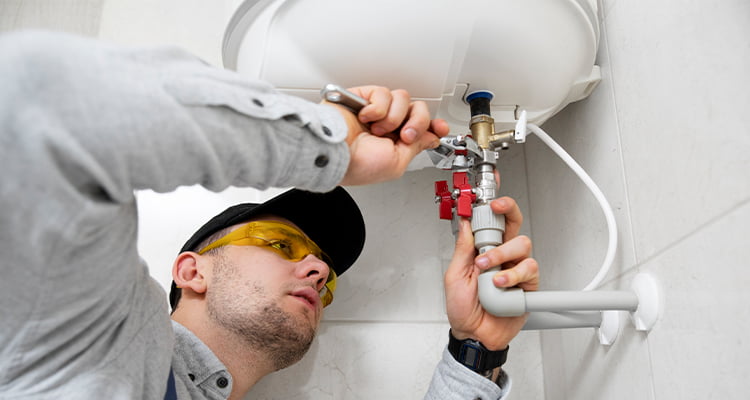
When it comes to home comfort, having a reliable and efficient boiler is non-negotiable. Yet, the process of installing a new boiler can seem daunting. There are many factors to consider, such as the type, size, and efficiency of the boiler, the cost and duration of the installation, and the qualifications and reputation of the installer.
As a professional HVAC contractor, we have seen first-hand the confusion and stress that can accompany boiler installation projects. That’s why we have compiled this comprehensive guide to help you navigate all the key considerations and tips for a successful and stress-free boiler installation.
Let’s get started and learn how to make your home cozy and warm.
Why Upgrade Your Boiler?
Before we get into the technicalities, let’s address the fundamental question: why should you consider upgrading your boiler? A modern, energy-efficient heating system enhances your home’s comfort and contributes to long-term cost savings. Imagine a home where warmth meets efficiency – that’s the goal.
Choosing The Right Boiler
The first step in boiler installation is to choose the right boiler for your home. There are three main types of boilers: combi, system, and regular. Each type has its advantages and disadvantages, depending on your heating and hot water needs, the size and layout of your home, and your budget.
Combi Boilers
Combi boilers are the most popular type of boiler, as they provide both heating and hot water on demand without needing a separate hot water cylinder or tank. They are compact and easy to install, with fewer components and pipes.
System Boilers
System boilers are similar to combi boilers, as they also provide heating and hot water on demand, but they require a separate hot water cylinder to store the hot water. This means they can supply multiple taps or showers simultaneously and are not affected by low water pressure.
Regular Boilers
Regular boilers, also known as conventional or heat-only boilers, are the oldest and most traditional type of boiler. They require a hot water cylinder and a cold water tank, usually located in the loft, to provide heating and hot water.
Sizing The boiler
The next step in boiler installation is to size the boiler, which means determining the output or power of the boiler. The output of the boiler affects its performance and efficiency, as well as the installation cost and energy bills.
A boiler that is too small will not be able to meet your heating and hot water needs, while a boiler that is too large will save energy and money. Therefore, it is important to choose a boiler that is just right for your home.
Placement Of Boiler
The location of your boiler plays a pivotal role in its effectiveness. Discover the optimal locations for boiler installation and learn how placement can impact both safety and efficiency. Consider factors such as ventilation, access for maintenance and repairs, and proximity to water sources and electrical outlets.
Comparing The Efficiency
The efficiency of the boiler is another important factor to consider. The boiler’s efficiency indicates how much of the fuel is converted into useful heat and how much is wasted. The higher the efficiency, the less energy and money you will spend on heating and hot water.
Generally, newer and more modern boilers are more efficient than older and more traditional boilers, as they have improved technology and features, such as condensing, modulating, and smart controls.
However, even the most efficient boiler can lose its efficiency over time due to wear and tear, dirt and debris, and poor servicing. Therefore, it is essential to have your boiler serviced regularly by a qualified professional.
Finding A Qualified Installer
The final and most crucial step in boiler installation is to find a qualified and professional installer, who can perform the installation safely, correctly, and efficiently. Installing a boiler is not a DIY job, as it involves working with gas, electricity, and water, which can be hazardous if not handled properly.
Moreover, incorrect installation can cause damage to the boiler and the property, as well as void the warranty and the insurance. Therefore, hiring a certified and reputable installer with the skills, experience, and credentials to install your boiler is vital.
Additional Tips For A Long-Lasting Boiler
To help you get the most out of your boiler installation, here are some tips and best practices to follow:
- Plan ahead and do your research.
- Choose the right time and season. Generally, it is better to avoid the peak periods, such as winter and holidays, when the demand and the prices are higher.
- Before the installation, you should prepare your home and your boiler to make the process easier and faster for the installer and yourself.
- After the installation, you should check the installation and the paperwork to ensure everything is done correctly and safely.
About Pro West Heating & Air Conditioning
At Pro West Heating & Air Conditioning, we aim to make heating and cooling your home easier and more affordable. We specialize in repairing, installing, and maintaining your central and wall-mounted air conditioners, heating, Hydronics, and humidifier systems.
Contact us today for energy-efficient heating and cooling upgrades.